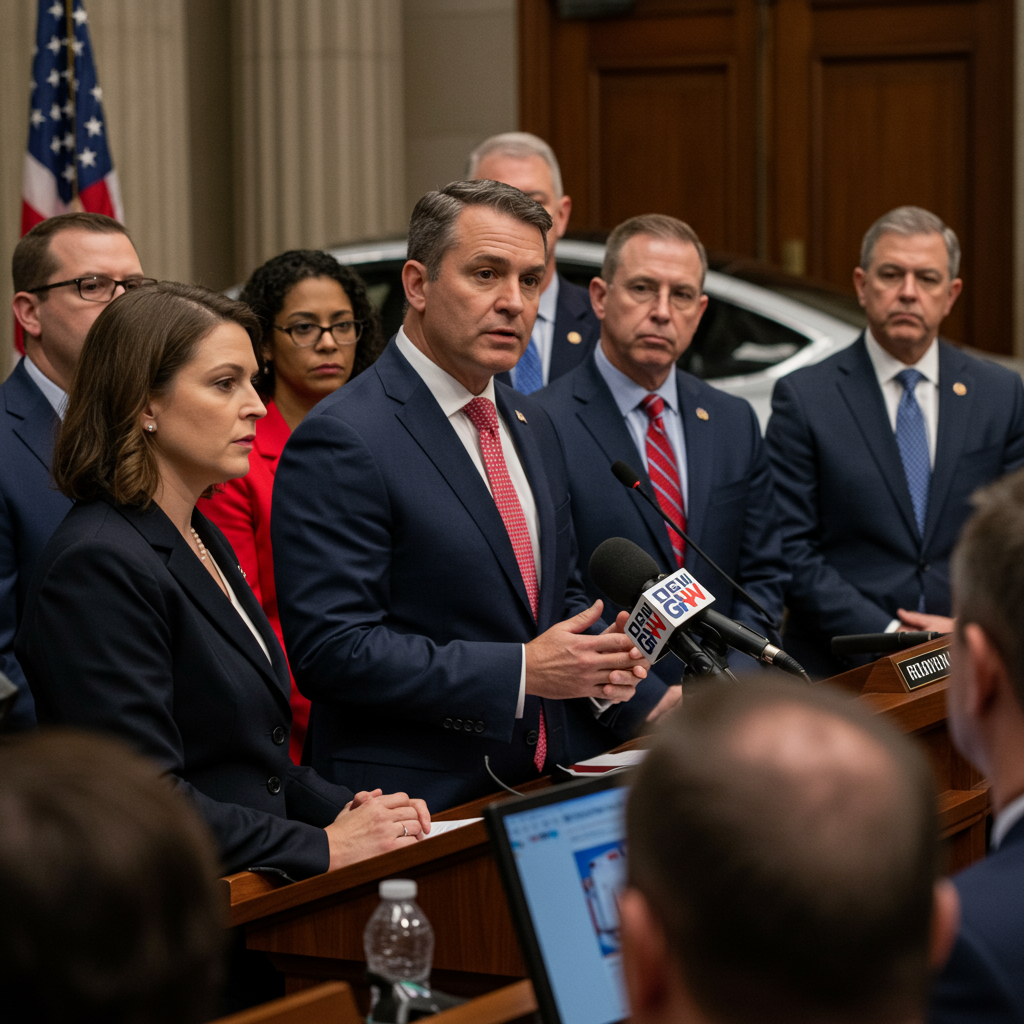Leaving a company after seven years is a huge decision. But one former tesla employee felt compelled to walk away, not because of the demanding work or the mission itself, but due to an inability to continue supporting its public face: Elon Musk. This inside look reveals the journey of a dedicated worker whose personal values eventually clashed with the actions and persona of the CEO, highlighting the complex dynamic between a company’s vision and its leadership. It shows how, for some, the mission isn’t enough when the person at the top becomes a moral barrier.
A Path Forged at the Gigafactory
Trae cervantes started his journey at Tesla’s Gigafactory in Sparks, Nevada, back in 2018. He didn’t have a formal education or specialized skills then. What he had was a need for stability and opportunity. Tesla offered him that chance, providing a path for growth. He began as a production associate, working long 12-hour shifts. The work was physically tough, but the structured schedule offered him days off he needed.
Showing strong work ethic, Cervantes moved up rapidly over seven years. He progressed from technician to lead and eventually into engineering roles. Advancement at Tesla, he learned, wasn’t just about skills. It also required building relationships and stepping up where others couldn’t. The company even supported his education. He earned certificates in advanced manufacturing and Lean Six Sigma while working there. He gained financial stability and career momentum he hadn’t expected.
The Mission Versus The Man
Despite his professional growth and belief in Tesla’s core mission for a sustainable future, Cervantes admits he “never drank the Elon Musk Kool Aid.” He observed a strong “cult of personality around Elon” within the company culture. Even controversial actions by Musk seemed to be excused or downplayed internally. This included issues that led to SEC scrutiny or public behavior like smoking marijuana.
Initially, Cervantes managed to separate his personal feelings about some of Musk’s past actions – such as the incident involving the Thai cave rescuer – from his commitment to Tesla’s goals. He believed in the company’s purpose. This internal separation worked for a while.
When External Actions Hit Home
However, Cervantes’ perspective shifted dramatically over time. This happened when Musk’s actions became more pronounced and seemed to directly impact the public perception of the company and even touch on the employee’s daily life and values. A key turning point was Musk’s deep entanglement with Twitter, later rebranded as X. His increasingly overt political activities became particularly troubling. Cervantes felt these actions diverted attention from Tesla’s mission. He found it particularly difficult when Musk appeared to use his wealth in politics. A specific instance involving a “giveaway for prospective voters” struck him as “morally wrong.”
Reports about Musk taking on a potentially controversial role within the U.S. government may have added to these concerns. During a period starting in early 2025, Musk was confirmed as a “special government employee” under the Trump administration. This role involved leading a Department of Government Efficiency (DOGE) to identify potential government job cuts. While SGE status has limits and specific disclosure rules, it allows individuals like Musk to perform government activities while still running multiple private companies. Critics have pointed to the potential for conflicts of interest when a CEO of major corporations also has access to sensitive government systems. Actions linked to this role, such as reports of abrupt staffing changes at agencies or confrontations over access, could easily fuel an employee’s discomfort with their leader’s public conduct.
Doubts and Growing Discomfort
The growing discomfort pushed Cervantes to look closer at the company itself. He began researching Musk’s history and Tesla’s business practices in detail. He examined things like stock valuation and long-standing promises. These promises included the delivery of Full Self-Driving (FSD) capability and the launch of a lower-cost electric vehicle. His research led him to question whether aspects of the company, particularly its financial underpinnings and product timelines, truly added up. This added another layer to his increasing desire to leave.
The shame of working at Tesla also grew. Cervantes started feeling embarrassed telling people where he was employed. This became particularly acute following incidents he viewed negatively, including actions he interpreted as potentially offensive. He began to speak more openly about his political views at work. Around the same time, he updated his resume, a clear sign he was preparing for an exit.
The Weight of the Culture
Cervantes’ experience with the impact of leadership actions adds to a broader picture of Tesla’s demanding culture reported by others. Another former employee, Amanda Manley, who worked in DMV operations, described her time from 2017 to 2021 as both the “best and worst.” She highlighted the intense demands, often working 12 to 16-hour shifts. Manley recalled working during significant personal events, including her wedding, honeymoon, and Christmas. She noted the immense pressure during the fourth quarter each year. This stress was driven by “extreme shareholder expectations alongside Elon’s ambitious Q4 goals.” This constant pressure took a significant toll on her well-being. While her primary reason for leaving related to work-life balance after maternity leave, her account echoes the theme of a company environment heavily influenced by external pressures and Musk’s personal ambitions, creating a “burn the midnight oil” mentality.
The Point of No Return
The decision to leave was not made lightly. Cervantes discussed it with his wife and close friends. Many of them shared his critical view of Musk’s behavior. He ultimately resigned without another job lined up, a risky move. He knew waiting for a potential layoff could have offered benefits like severance pay. However, witnessing how previous layoffs at Tesla were handled – with employees finding out abruptly – solidified his resolve. Events happening on the day he resigned, such as reports of former President Trump purchasing a Tesla, seemed to reinforce his feeling that it was the right time to go.
He told his supervisor simply that he had to leave. He explained that he felt he was “compromising myself morally by walking through those doors every day.” Leaving after seven years was sad. However, his departure wasn’t due to the company itself or his colleagues, many of whom he considered good people. The fundamental reason, he concluded, was “the face of the company,” Elon Musk.
Frequently Asked Questions
Why did a former Tesla employee quit specifically because of Elon Musk?
The employee, Trae Cervantes, stated he left after seven years primarily because he could no longer morally support Elon Musk. While he initially believed in Tesla’s mission and benefited from career growth, Musk’s increasingly prominent and controversial public actions, including deep involvement in Twitter (X) and overt political activities, created a significant personal conflict for him.
What examples of Elon Musk’s actions reportedly led to the employee’s decision?
Key turning points for Cervantes included Musk’s actions on Twitter/X and his political engagement, particularly a “giveaway for prospective voters” which the employee found “morally wrong.” While not explicitly stated as a direct cause for Cervantes in the source, reports about Musk taking a controversial government role leading a department to cut federal jobs also reflect the kind of political activity that fueled the employee’s discomfort with his leader’s public behavior.
What advice did the former employee offer to others considering leaving Tesla?
Trae Cervantes advises others in a similar position to prioritize their moral comfort. His own decision, while difficult and made without another job lined up, was driven by the feeling that he was compromising his values by continuing to work there. His experience suggests that aligning your work with your moral beliefs is crucial, even if it means leaving a stable position.
Prioritizing Values Over Position
The story of this former Tesla employee underscores a critical challenge in the modern workplace. When a leader’s public persona and actions become inseparable from the company brand, it can create an untenable situation for employees whose values diverge. For Trae Cervantes, seven years of dedication and career growth at Tesla were ultimately outweighed by his inability to reconcile his personal ethics with the actions of Elon Musk. His departure serves as a powerful reminder that for many, a job is not just about the work itself, but also about who you work for and what that leadership represents.



